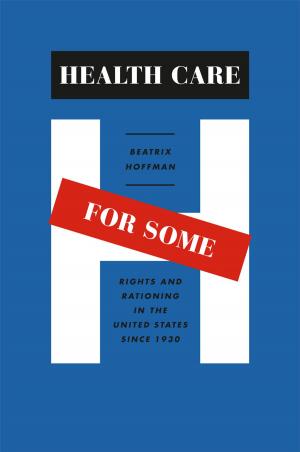The Conquest of Ruins
The Third Reich and the Fall of Rome
Fiction & Literature, Literary Theory & Criticism, European, Nonfiction, History, European General| Author: | Julia Hell | ISBN: | 9780226588223 |
| Publisher: | University of Chicago Press | Publication: | March 19, 2019 |
| Imprint: | University of Chicago Press | Language: | English |
| Author: | Julia Hell |
| ISBN: | 9780226588223 |
| Publisher: | University of Chicago Press |
| Publication: | March 19, 2019 |
| Imprint: | University of Chicago Press |
| Language: | English |
The Roman Empire has been a source of inspiration and a model for imitation for Western empires practically since the moment Rome fell. Yet, as Julia Hell shows in The Conquest of Ruins, what has had the strongest grip on aspiring imperial imaginations isn’t that empire’s glory but its fall—and the haunting monuments left in its wake.
Hell examines centuries of European empire-building—from Charles V in the sixteenth century and Napoleon’s campaigns of the late seventeenth and early eighteenth centuries to the atrocities of Mussolini and the Third Reich in the 1930s and ’40s—and sees a similar fascination with recreating the Roman past in the contemporary image. In every case—particularly that of the Nazi regime—the ruins of Rome seem to represent a mystery to be solved: how could an empire so powerful be brought so low? Hell argues that this fascination with the ruins of greatness expresses a need on the part of would-be conquerors to find something to ward off a similar demise for their particular empire.
The Roman Empire has been a source of inspiration and a model for imitation for Western empires practically since the moment Rome fell. Yet, as Julia Hell shows in The Conquest of Ruins, what has had the strongest grip on aspiring imperial imaginations isn’t that empire’s glory but its fall—and the haunting monuments left in its wake.
Hell examines centuries of European empire-building—from Charles V in the sixteenth century and Napoleon’s campaigns of the late seventeenth and early eighteenth centuries to the atrocities of Mussolini and the Third Reich in the 1930s and ’40s—and sees a similar fascination with recreating the Roman past in the contemporary image. In every case—particularly that of the Nazi regime—the ruins of Rome seem to represent a mystery to be solved: how could an empire so powerful be brought so low? Hell argues that this fascination with the ruins of greatness expresses a need on the part of would-be conquerors to find something to ward off a similar demise for their particular empire.















